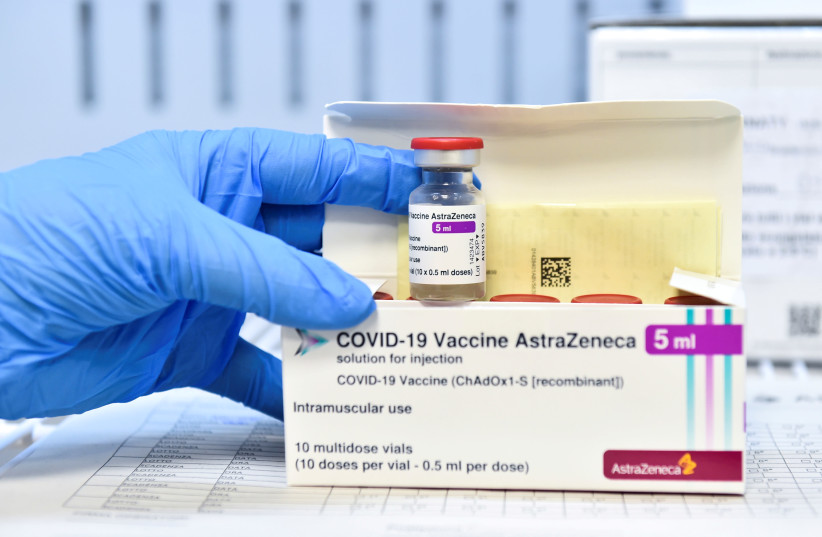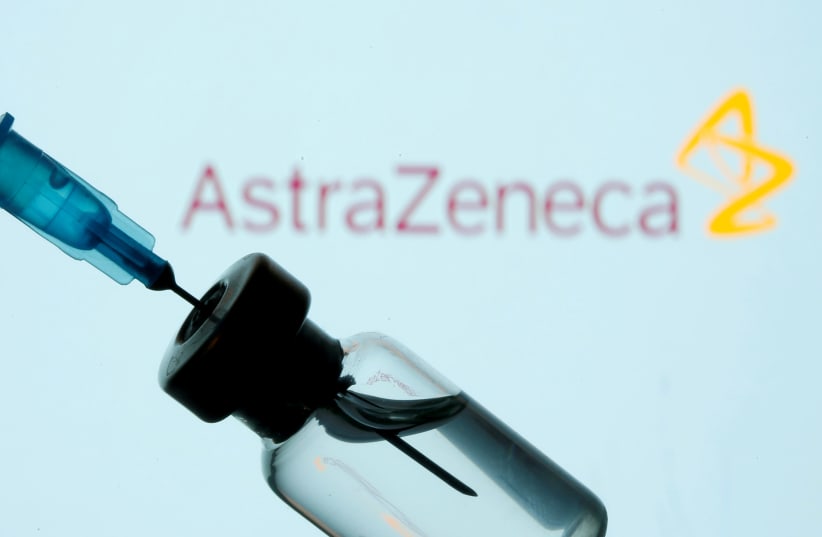Israel will start offering the option of receiving a coronavirus AstraZeneca vaccine starting from Thursday, the Health Ministry announced Monday.
The vaccine will be available with a specific medical referral, which will be given to those who cannot receive an mRNA vaccine for medical reasons or who have experienced significant side effects after Pfizer, or in other special circumstances.
The vaccine by AstraZeneca is based on a different technology than Pfizer’s and Moderna’s, which are both messenger RNA vaccines. AstraZeneca uses a weakened animal virus as a viral vector. It contains the coronavirus spike protein so that the body’s cells will be able to recognize it and produce antibodies.
Moderna has received emergency approval from the European Medicines Agency and other health bodies, but not from the US Food and Drug Administration.
As in the case of the mRNA Pfizer and Moderna vaccines, AstraZeneca also requires two doses.


Individuals who receive two AstraZeneca shots and those who get a second shot of AstraZeneca after receiving one Pfizer vaccination will be considered fully protected 14 days after the second shot.
Individuals who receive a booster shot of AstraZeneca will also be considered inoculated after two weeks (for Pfizer it is after seven days).
As of Monday, 6.2 million Israelis have received at least one dose of a coronavirus vaccine, 5.7 million at least two and 3.8 million have been inoculated also with a booster.
The successful booster drive has been credited by health officials and experts as the decisive factor allowing the country to leave the fourth wave behind without imposing any major restrictions.
Some 1,199 new cases were registered on Sunday. A month earlier there were more than 6,500.
The number of serious patients also continued to decrease, dropping to 372 on Monday, around 350 less than four weeks earlier.
On Monday Israel was expected to pass 8,000 deaths since the beginning of the pandemic. In the morning, the death toll stood at 7,999.
In the past month, on average, 15 people succumbed to the virus every day. Since the beginning of October, 213 people have died of COVID.
